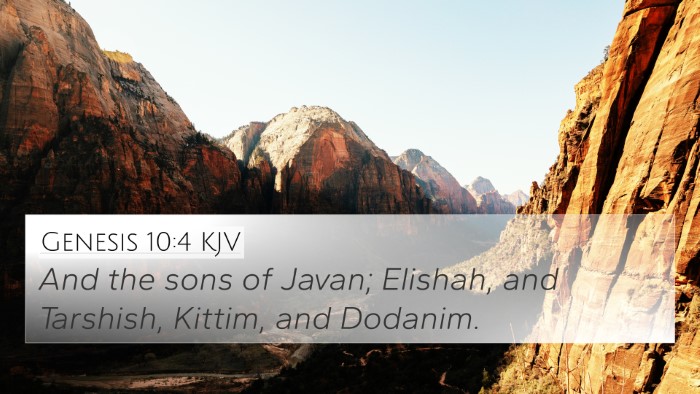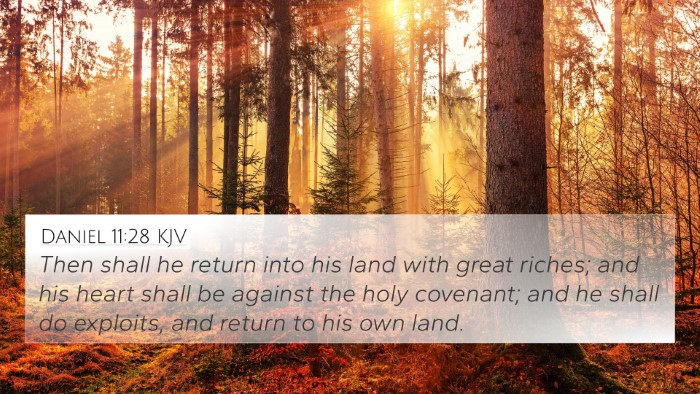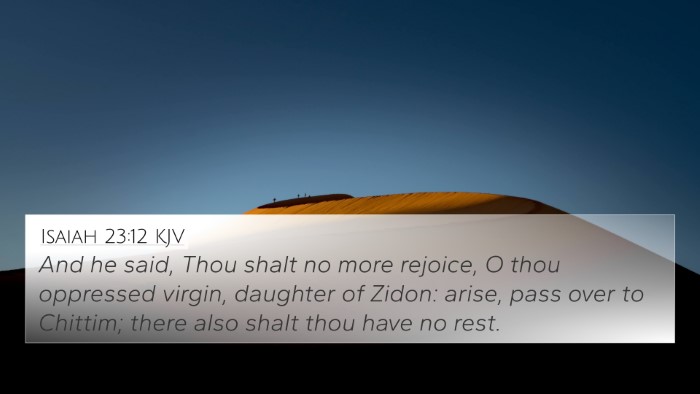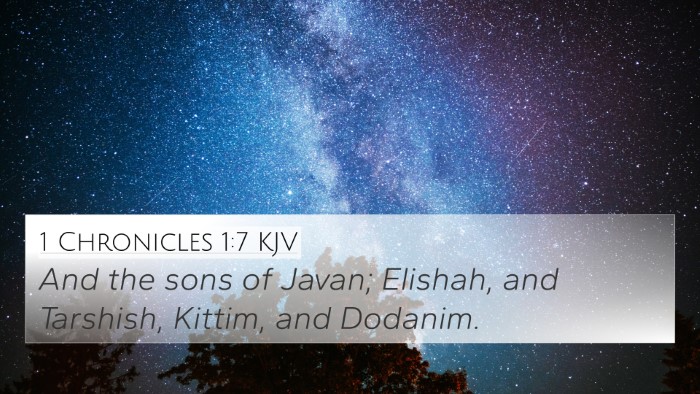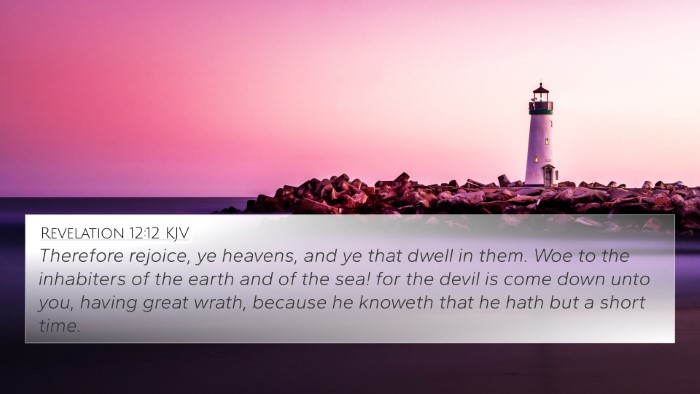Understanding Daniel 11:30
Daniel 11:30 states: "For ships of Chittim shall come against him: therefore he shall be grieved, and return, and have indignation against the holy covenant: so shall he do; he shall even return, and have intelligence with them that forsake the holy covenant."
This verse is rich in prophetic meaning and the context surrounding it values careful interpretation. Several esteemed commentaries provide insights into its depth, including works by Matthew Henry, Albert Barnes, and Adam Clarke.
Interpretation and Meaning
The passage can be understood on multiple levels:
- Prophetic Context: The reference to "ships of Chittim" symbolizes maritime powers or forces that play a significant role in attempting to thwart or challenge the King of the North's plans.
- Emotional Reaction: The phrase "shall be grieved" reflects the emotional turmoil and frustration the King experiences due to these external threats.
- Indignation Towards the Covenant: The "holy covenant" typically signifies God's laws or promises. The king's indignation indicates a violent response against these divine ordinances.
- Collaboration with Apostates: The notion of "intelligence with them that forsake the holy covenant" suggests alliances formed with those who abandon their sacred commitments for personal gain.
Commentary Insights
Matthew Henry's Commentary
Henry emphasizes the direct connection between the confrontations that arise from external forces discarding God's covenant, charting a clear path for moral decline when divine statutes are forsaken.
Albert Barnes' Notes
Barnes highlights the geopolitical implications of the prophecy. He observes that these ships may symbolize not only military threats but financial and political powers challenging the moral order established through God's covenant.
Adam Clarke's Commentary
Clarke offers a historical perspective, suggesting that this verse refers back to significant historical events involving Antiochus Epiphanes, a figure known for his oppression of the Jewish people and desecration of their covenant.
Bible Verse Cross-References
Understanding Daniel 11:30 is enriched when we consider its relation to other scripture. Here are some relevant Bible verses that connect thematically:
- Daniel 8:25: Discusses a similar king’s contempt for holy things and oppressive actions against the 'people of the saints.'
- Daniel 9:27: References the spoiling of the covenant, linking to themes of betrayal and violation.
- Revelation 13:7: Highlights the authority of beasts over the saints, reflecting the same conflict seen in Daniel.
- Matthew 24:15: Jesus alludes to the "abomination of desolation," referencing the desecration of holy places.
- 2 Thessalonians 2:4: Speaks of one who opposes and exalts himself against all that is called God, resonating with the king's actions.
- Malachi 2:8: Discusses the unfaithfulness of priests who turn aside from God’s covenant.
- Ezekiel 22:26: Mentions priests that profane God's holy things, exhibiting the consequences of forsaking covenant responsibilities.
Thematic Connections
The interconnectedness of the scriptures provides a firm foundation for analysis. Bible verse cross-references serve as a vital tool for understanding the broader themes within biblical texts. Here, we explore:
- Identifying Connections: By linking Old and New Testament narratives, readers gain a holistic perspective of God's ongoing covenantal relationship with humanity.
- Comparative Analysis: A careful study of the Gospels reveals parallels to prophetic texts, shedding light on the fulfillment of promises.
- Thematic Studies: Exploring subjects such as the oppression of God's people can be enhanced by cross-referencing several relevant passages.
Tools for Bible Cross-Referencing
For those seeking to dive deeper into connecting these themes, there are many resources available:
- Bible Concordance: A helpful guide for finding words or phrases and their locations throughout the Bible.
- Bible Cross-Reference Guide: Such guides help locate verses with similar themes or subjects.
- Cross-Reference Bible Study: Methods for studying scripture in context with related verses.
Conclusion
Daniel 11:30 presents a multifaceted view of the conflict between earthly kingdoms and divine covenants. With insights from public domain commentaries, connections to other Bible verses, and recognition of the themes that span both the Old and New Testaments, we can appreciate the richness of biblical prophecy.
This collaborative understanding through scriptural cross-referencing encourages readers to delve into the Bible's unifying narrative. As we explore cross-references, we enrich our study and enhance our grasp of God's relentless covenant with His people.



